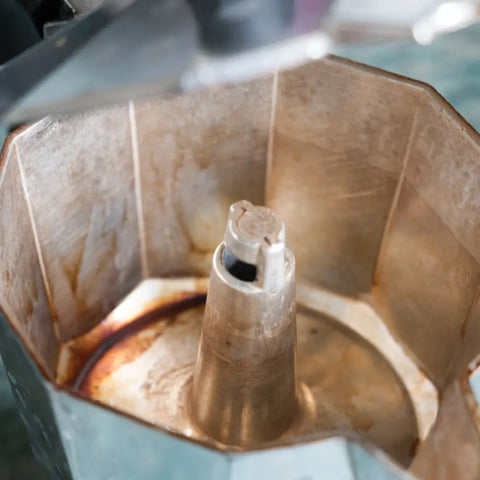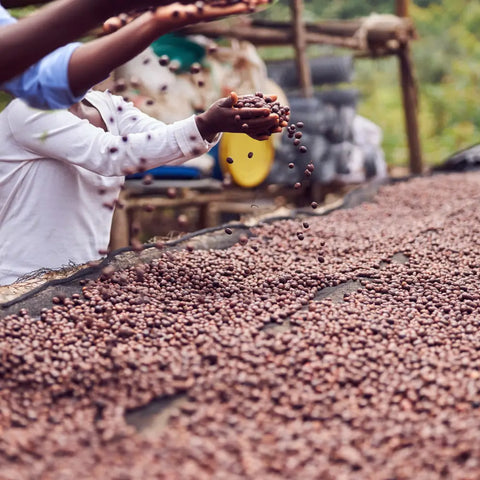Coffee is much more than just a morning drink; it's a culture, a passion, and for many, an art. However, not all coffees are created equal. There is a major distinction between specialty coffee and conventional coffee, which affects not only taste but also environmental, social, and economic impact. Let's dive into these differences to understand what makes specialty coffee so unique.
What is Conventional Coffee?
Conventional coffee, or commercial coffee, represents the vast majority of coffee consumed worldwide. It is often produced in bulk with the primary goal of efficiency and cost reduction.
Main Characteristics:
-
Mass production: The beans are grown in large quantities, often in monocultures, with intensive use of pesticides and chemical fertilizers.
-
Variable quality: The beans are generally of lower quality, with accepted defects and a blend of different origins to achieve large volumes.
-
Dark roasting: Conventional coffee is frequently roasted very dark to mask bean defects and ensure a uniform, bitter flavor.
-
Low price: The cost per kilogram is generally very low, allowing for highly competitive retail prices.
-
Limited traceability: It is difficult to know exactly where the beans come from and under what conditions they were produced.
What is Specialty Coffee?
Specialty coffee is a category of coffee that emphasizes exceptional quality, traceability, and sustainable practices at every stage of the production chain, from bean to cup.
Main Characteristics:
-
Superior quality: The beans are selected for their lack of defects and unique flavor profile. They are often grown under specific conditions (altitude, climate, soil) that promote the development of complex flavors. Quality is assessed according to strict criteria by experts (Q Graders), and coffees must score 80 points or more on a 100-point scale to be considered "specialty."
-
Complete traceability: Every bag of specialty coffee can be traced back to its original farm, and sometimes even to the specific plot where it was grown. This transparency ensures ethical and sustainable practices.
-
Ethical and sustainable cultivation: Farmers are often paid fairly (well above the conventional coffee market price), and environmentally friendly farming practices are prioritized.
-
Artisanal roasting: Roasting is done with precision to reveal the intrinsic flavors of the bean, often in light or medium roasts, to preserve aromatic complexity.
-
Diverse flavor profiles: Specialty coffee offers a range of flavors from fruity, floral, chocolatey notes, to spice or nut aromas, depending on origin and processing.
-
Varied preparation methods: It is often prepared with gentle methods (filter, Chemex, Aeropress, V60) that allow you to appreciate all the aromatic nuances.
Want to dig deeper? We explain everything about specialty coffee in our comprehensive guide.
Why are specialty coffees rarely certified organic?
The paradox of specialty coffee: many producers apply practices more respectful than organic... without having the label. Why? Because certification is expensive, very expensive. For a small producer cultivating a few hectares at altitude, spending several thousand euros a year for a piece of paper is mission impossible.
And then, there's the paperwork. Endless files, inspections, requirements sometimes unsuitable for small mountain plots. A Geisha producer in Panama cultivating three hectares at 1600m altitude doesn't necessarily have the means to hire a consultant for organic certification.
The result: you can come across coffee grown without pesticides, with exemplary sustainable practices, but that will never have the organic label. The absence of certification says nothing about the environmental quality of the coffee. That's why we prioritize transparency: we tell you where your coffee comes from, who produced it, and how. More honest than a logo on a package.
Why Choose Specialty Coffee?
Choosing specialty coffee is much more than just a taste preference. It's a choice that supports ethical, environmental practices and a pursuit of excellence.
-
Superior taste experience: Discover a richness of flavors and aromas you will never find in conventional coffee.
-
Support for producers: By purchasing specialty coffee, you directly support farmers who are fairly compensated for their hard work and dedication to quality.
-
Reduced environmental impact: Sustainable farming practices promote biodiversity and protect ecosystems.
-
Transparency: Know exactly where your coffee comes from and how it was produced.
At Chronic., we only roast specialty coffee
With us, no conventional coffee. All our coffees meet the criteria of specialty coffee: rigorous selection, full traceability, artisanal roasting in small batches. Our blends like 05AM or 10AM are organic and Fairtrade specialty coffees, designed to reveal the best of each origin without compromising on ethics.
And sometimes, we go even further with exceptional coffees like our Janson Geisha 929. These ultra-rare micro-lots even exceed specialty coffee standards: exclusive varieties (here, the famous Geisha), exceptional terroirs (the slopes of the Barú volcano in Panama), experimental processes, and unique aromatic profiles. These precious coffees, produced in very limited quantities, offer sensory experiences found nowhere else. The Geisha 929, with its jasmine tea notes and crystalline purity, is the kind of rare coffee reserved for the most curious palates.






